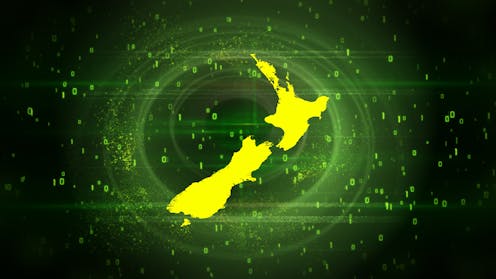Scrapping the national census raises data sovereignty and surveillance fears for Māori
- Written by Lara Greaves, Associate Professor of Politics, Te Herenga Waka — Victoria University of Wellington

Yesterday’s announcement that the five-yearly national census would be scrapped has raised difficult questions about the effectiveness, ethics and resourcing of the new “administrative” system that will replace it.
An administrative census will use information collected in day-to-day government activities, such as emergency-room admission forms, overseas travel declarations and marriage licences.
The move is not necessarily bad in principle, especially given the rising cost of the census and declining participation rates. But to make it effective and robust it must be properly resourced. And it must give effect to the principles of te Tiriti o Waitangi (Treaty of Waitangi), as set out in the Data and Statistics Act.
The transformation process so far leaves considerable room for doubt that these things will happen. In particular, there are major ethical and Māori data sovereignty issues at stake.
As Te Mana Raraunga (the Māori Data Sovereignty Network) advocates, data is a living taonga (treasure), is of strategic value to Māori, and should be subject to Māori governance. Changes to census methods risk compromising these values – and undermining public trust in the official statistics system in general.
Because the new system takes census data gathering out of the hands of individual citizens and households, it also raises questions about state surveillance and social licence.
Surveillance and social licence
Surveillance means more than police stakeouts or phone-tapping. The state constantly collects and uses many kinds of data about us and our movements.
For more than a decade, the Integrated Data Infrastructure has been the government’s tool to patch gaps in its own data ecosystems.
This administrative data is collected without our direct and informed consent, and there is no real way to opt out. The safeguard is that information about individuals is “de-identified” once it enters the Integrated Data Infrastructure – no names, just data points.
Stats NZ, which administers the system, says it has the social licence to collect, cross-reference and use this administrative data. But genuine social licence requires that people understand and accept how their data is being used.
Stats NZ’s own research shows only around one in four people surveyed have enough knowledge about its activities to make an informed judgement.
The risks associated with this form of surveillance are amplified for Māori because of their particular historical experience with data and surveillance. The Crown used data collection and monitoring systems to dispossess land and suppress cultural practices, which continue to disproportionately affect Māori communities today.
Meaningful work to address this has taken place under the Mana Ōrite agreement, a partnership between Stats NZ and the Data Iwi Leaders Group (part of the National Iwi Chairs Forum). The agreement aims to solidify iwi authority over their own data and ensure Māori perspectives are heard in decision-making around data and statistics.
Data and a distorted picture of Māori
On the face of it, repurposing administrative data seems like a realistic solution to the census budget blowout. But there are questions about whether the data and methods used in an administrative census will be robust and of high quality. This has implications for policy and for communities.
Administrative data in its current form is limited in many ways. In particular, it misses what is actually important to Māori communities, and what makes life meaningful to them.
Administrative data often only measures problems. It is collected on Māori at their most vulnerable – when they’re in crisis, sick or struggling – which creates a distorted picture. In contrast, Te Kupenga (a survey by Stats NZ last run in 2018) included information by Māori and from a Māori cultural perspective that reflected lived realities.
Before increasing reliance on administrative data, greater engagement with Māori will be needed to ensure a data system that gathers and provides reliable, quality data. It is especially important for smaller hapori Māori (Māori communities), which need the data to make decisions for their members.
Stats NZ plans to partly fill the data void left by removing the traditional census with regular surveys. But the small sample size of surveys often makes it impossible to obtain reliable information on smaller groups, such as takatāpui (Māori of diverse gender and sexualities) or specific hapū or iwi groups.
It is not clear the implications of this have been fully been worked through in the census change process. Nor is it clear whether the recommendations from Stats NZ’s Future Census Independent External Review Panel – from Māori and a range of experts – have been fully considered.
This included crucial recommendations around commissioning an independent analysis informed by te Tiriti principles, meaningful engagement with iwi-Māori, and the continuing implementation of a Māori data governance model developed by Māori data experts.
We are not opposed to updating the way in which census data is collected. But for the new approach to be just, ethical and legal will require it to adhere to te Tiriti o Waitangi and the relationship established in the Mana Ōrite agreement.
Authors: Lara Greaves, Associate Professor of Politics, Te Herenga Waka — Victoria University of Wellington



















